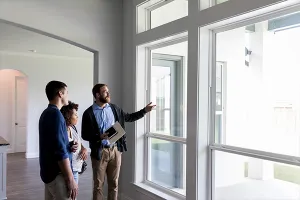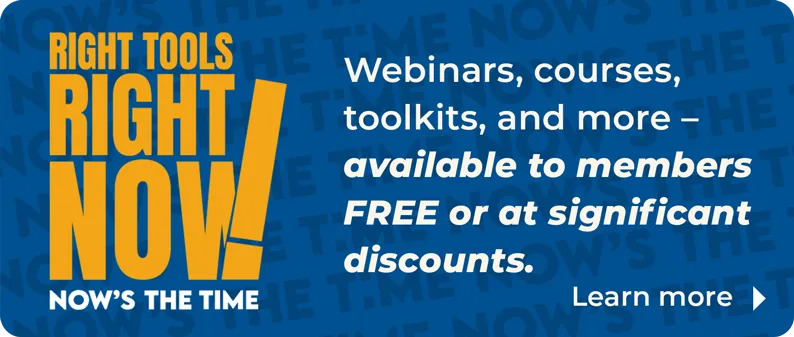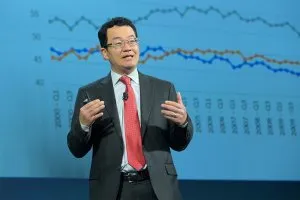There’s no doubt that better volunteer leaders make for better associations. Leaders who have enthusiasm, focus, clear understanding of their roles, and mutual respect for their peers and association staff can truly better the lives and businesses of all members and the homeowners and communities they serve.
On the other hand, volunteer leaders who lack knowledge and skills, or abuse their position, can stifle progress, poison association culture, create a toxic work environment for staff , and damage the reputation of all REALTORS®. Volunteer leadership is not easy, and training is essential. But what type of training makes the best leaders? What essential skills should they learn and how can associations deliver training in a way that encourages, enlightens, and makes the volunteer experience as rewarding for the REALTOR® as it is for the association? REALTOR® AE Magazine set out to talk to the education designers and leaders of some of the country’s best REALTOR® leadership training to find out.
Most popular leadership training parts
At the Massachusetts Association of REALTORS®, CEO Robert Authier, RCE, CAE, teaches volunteers about leadership in one of his favorite ways: studying the traits of other leaders. “When I teach our academy, I give each small group two leaders to choose from, such as FDR or Martha Stewart,” says Authier. “We have them study the leader, discuss his or her qualities, practices, accomplishments, and personality; and come back to the group and report.” This imbues the participants with an appreciation of the diversity of what defines leadership, he says.
Any activity that gets members moving and thinking on their feet, such as role playing, is also successful, says Authier. Putting members in simulations of situations they may encounter prepares them to react with confidence and make sensible decisions. The “conundrums” exercise in the MAR leadership training does just that. “We break into small groups and think through a situation where, for example, the president of the association is found guilty of a crime, or the AE suddenly leaves, or—a real thing that happened to a local board here—there was a major fire that destroyed the association building,” says Authier. “What do you do and how do you deal with that as a leader?”
When it comes to leadership training for local association leaders, past president panel discussions are a favorite, Authier says, because people like to ask questions of those who have done it before.
Tapping into the wisdom of past leaders is also a top-reviewed session at Washington REALTORS® leadership academy. “The panel of past state presidents discussing their personal leadership journeys—their challenges and successes—can get very personal, emotional, and gratifying for all involved,” says association CEO Steve Francks, RCE, CAE. “Watching the connections that form between our great past leaders and those who will be following in their footsteps is magical.”
Like Washington, Massachusetts has a popular leadership academy in addition to leadership training for volunteers. But two programs can’t train everyone in the state who holds a leadership or committee chair position. Where do volunteers holding leadership positions receive training if they can’t travel or they don’t have money for fees or time in their schedules?
Online training provided by the National Association of REALTORS®, including the REALTORS® Excelling in Association Leadership Self-Study Course and the REALTORS® Leadership Program 100, were designed to fi ll this void.
But as Authier and other AEs have realized, linking these NAR offerings with state and local programs through a coordinated set of competencies and body of knowledge could lead to more consistent, robust, and engaging opportunities.
To that end, the 2018 Volunteer Leadership Development Work Group, co-chaired by Authier and Tricia Thomas, RCE, CEO of the Bay East Association of REALTORS®, Calif., is exploring ways to revamp NAR’s training to focus on a curriculum that can be offered at all levels of the REALTOR® organization.
What the advisory board is hoping to develop for volunteer leaders, says Authier, is the same thing that was developed years ago for AEs; a competencies and body of knowledge document, on which all of NAR’s AE professional development programs are based. The work group will transition to a permanent AEC advisory board in 2019 to facilitate an ongoing focus on volunteer leadership development programming.
Training leaders who may never volunteer
Like many associations, the Dayton Area Board of REALTORS®, Ohio, offers leadership training to two distinct audiences. Their leadership academy is focused on producing REALTORS® who aspire to leadership positions in the community or in business, and their director orientation primes directors and committee chairs in the essentials of running meetings and association policy.
Although some academy attendees may never serve the association as a volunteer, Dayton CEO Andrew Sims, RCE, says it is nonetheless essential to the association. “You’ve got to make well-rounded individuals for your marketplace by teaching them things like leading in the community and how government works,” he says. “And as you actively create leaders for the community, you’re also passively identifying people who would make great leaders for the association.”
The academy gives Sims a glimpse of his future leaders. “What ends up happening is that these REALTORS® start meeting people who are engaged in the association, they start learning more about what the association does, and they start realizing that the association offers more and does more than they thought.”
Sims serves on the advisory board for the state of Ohio’s leadership academy, and one best practice he’s learned is to always have an end-of-the year project in mind, something that will enable the participants to apply all that they’ve learned. One project asks leadership academy participants to pick one of the grant opportunities NAR offers—a smart growth grant or diversity grant, for example— and develop a program to implement along with a presentation to the class and the board of directors. “It’s a great end project that incorporates leadership skills such as consensus building and public speaking, plus any of these leaders could take these grant ideas back to their local associations and implement them there,” says Sims.
At the local level, Dayton’s director orientation emphasizes the role of the volunteer versus the role of the staff . “We make a very clear line in the sand that the committees are there to do the work of the association at the request of the president with the approval of the [board],” says Sims. “And inside of that, the staff people are there to execute the work of the committees.”
Help leaders understand their role
Volunteer leaders, especially presidents, who are unclear of their role and overstep their purview are one of the main grievances from AE behind the renewed push for more consistent and broader-reaching leadership training, says Authier.
“I’m sure everyone in the industry has a war story about a leader who had their own agenda,” says Sims. “But what stands in their way here is a culture that’s stronger than the individual.”
The Dayton association not only pushes leadership training that reinforces the roles of volunteers and staff but also has clear policy detailing these roles. “To the AEs who struggle with presidents who do whatever they want, I can just say, at the end of day you can’t change people. You can only institute clear policy and work to change the culture enough so that future leaders will fall in line.”








